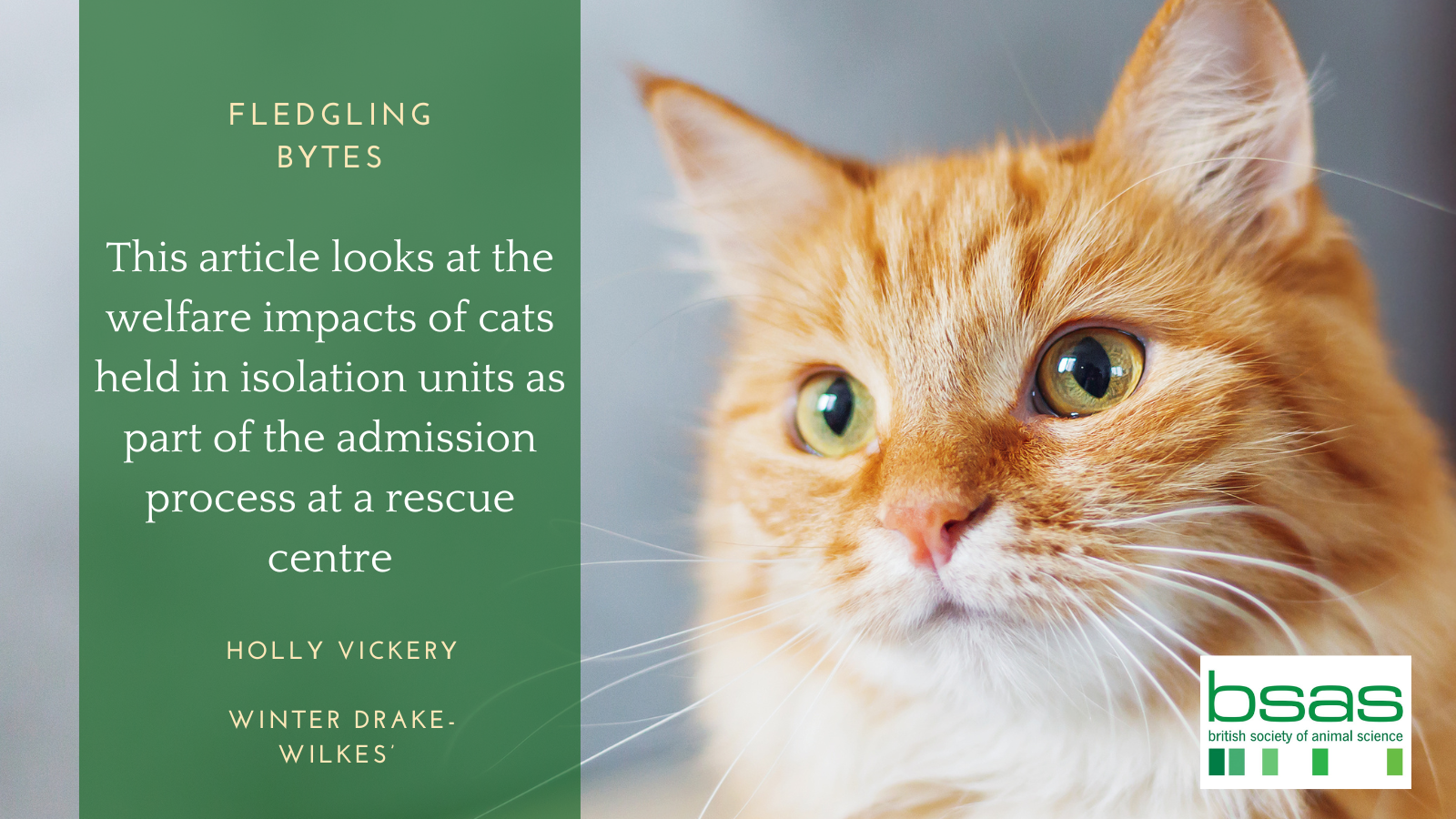
The impact of puzzle feeders and water bowl raisers as feline enrichment to combat food abstinence – the detriment of isolation

This study was shortlisted for the 2023 Thesis of the Year Award and completed as part of Winter Drake-Wilkes’ studies for a BSc (Hons) Animal Behaviour and Welfare from Abingdon and Witney College.
This study focused on a much under researched area: the welfare impacts of cats held in isolation units as part of the admission process at a rescue centre. The literature review shows that cats entering these situations are typically already showing signs of anxiety and fearfulness, as the vast majority of cats relinquished to rescues are reported to have problem behaviours. Under these conditions cats typically show one of two behavioural patterns, with some cats showing an ‘active’ response with frustration and often escape related behaviours shown, and the others a ‘passive’ response with withdrawal and a decrease in normal behaviours shown. Of particular issue within the second group of cats, the ‘passive’ responders is reduced food intake likely due to anxiety, and therefore the goal of this study was to examine two different types of enrichment and evaluate their ability to increase feed intakes.
The value of enrichment has been demonstrated in a multitude of different captive species and can be a valuable tool to help improve the experience of animals, especially in stressful situations. But enrichment must be carefully chosen to ensure its relevance and usefulness to the species and situation – therefore this study ensured all other environmental factors remained the same and examined if the addition of either a water bowl raiser or a puzzle feeder would improve feed intakes in isolated cats. In total 14 cats of both sexes across a broad age and breed range were used, seven tested the raised water bowls, and seven the puzzle feeders. Initially a 3-day standard control period took place when feed intakes and behaviours were monitored before the enrichment item was added, following this the cats were monitored for four days whilst the enrichment remained in their pens.
The results showed a significant increase in feed intakes and feeding-related behaviours when the puzzle feeder was used, whereas the water bowl raiser made no difference to these factors. Feeding based enrichment is likely to stimulate natural predatory behaviours for cats and therefore may have a positive impact on their welfare, and as demonstrated here achieved the goal of increasing feed intakes. The raising of a water bowl seems less biologically relevant and highlights the need to consider the behaviours changed by introducing enrichment – I would suggest that increasing the height of a water bowl is not truly enrichment and this links to the lack of change in behaviours. Further research considering the most optimal type of puzzle feeder would be highly beneficial as many forms of this enrichment exist, and it would also be interesting to investigate individual responses and the link between more nervous cats and how effective enrichment is.
This research took place in the Denham branch of the RSPCA and all of the cats that took place in the studies were later successfully adopted!
Written by Dr Holly Vickery, Harper Adams University.
